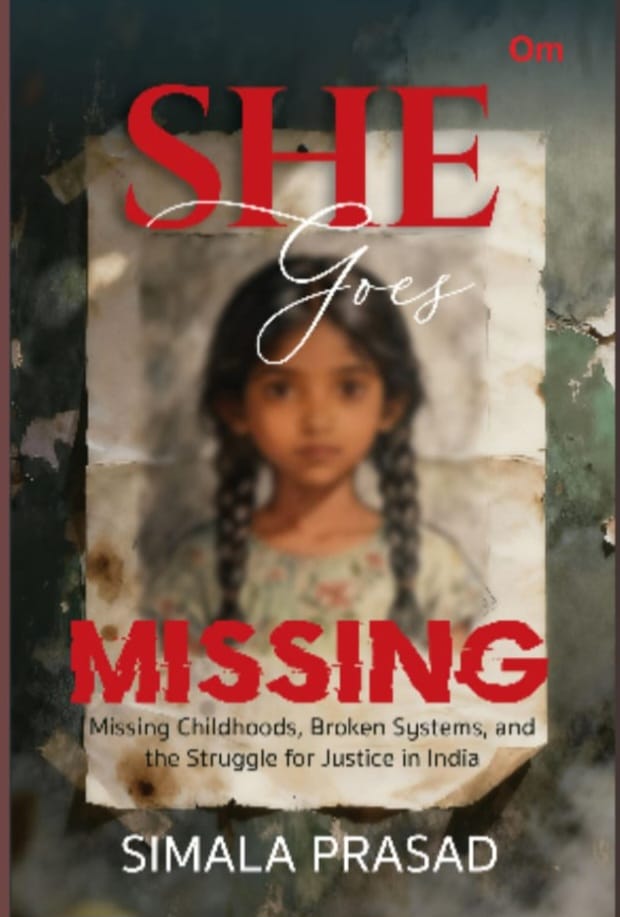IPS officer Simala Prasad is set to release her compelling new book, She Goes Missing, published by OM Books International. The work offers a rare, courageous, and deeply humane examination of one of India’s most overlooked human-rights crises—the alarming number of missing minor girls and the complex realities surrounding their disappearance.
Far from reducing these cases to statistics, She Goes Missing brings each story to life with clarity, empathy, and a sense of moral urgency.
“Every missing girl is not a case file—she is an unfinished story.”
Drawing from more than a decade of experience in policing, social intervention, and ground-level investigations, Prasad dismantles the oversimplified narratives that often label such cases as “elopements” or “runaways.” Instead, she exposes the deeper forces—unequal socialization, patriarchal control, systemic apathy, exploitation, and psychological vulnerabilities—that place young girls at risk.
“When we trivialize a girl’s disappearance, we trivialize her fears, her dreams, and her entire life.”
Blending real case studies with legal insight and sharp social commentary, Prasad offers readers a window into the lived experiences behind every FIR, every recorded statement, every missing-person report. Her writing urges society to look beyond the paperwork and see the human being whose life is suspended in uncertainty.
“Behind every document lies someone’s future waiting to be rewritten.”
Shining a Light on Rehabilitation—A Conversation India Avoids
One of the most impactful dimensions of the book is its focus on rehabilitation, a stage almost entirely absent from mainstream discourse. Prasad asserts that the struggle does not end with recovery. Reintegration is fraught with emotional, social, and psychological complexities that demand sustained institutional and community support—support that is often missing.
“Rescue is only the beginning. True healing comes from acceptance.”
By confronting uncomfortable truths, She Goes Missing challenges families, citizens, institutions, and policymakers alike. It calls for empathy, responsibility, and a complete rethinking of the frameworks through which India understands its missing girls.
“When a girl goes missing, we do not lose just one child—we lose a part of our collective humanity.”
Ultimately, She Goes Missing is more than a book—it is a call to conscience. It urges the nation to acknowledge the depth of the crisis and take meaningful steps to safeguard its daughters.
“Change begins the moment we choose to truly see.”
With its honesty, insight, and emotional depth, She Goes Missing stands out as essential reading for anyone who believes in justice, equality, and the transformative power of truth.

